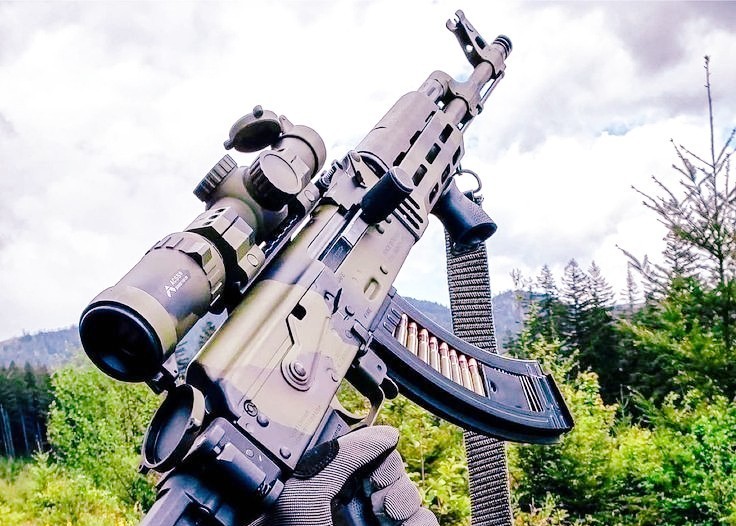
A major national worry in Ghana is the increase in gun ownership and gun-related incidents. Urgent enforcement, intelligence collection, legal reforms, and community collaboration are all necessary if the police and security forces are to address it successfully and quickly.
There is an increase in gruesome murders, unusual deaths, serial killings, and missing persons. It is interesting to note that these missing persons are always discovered dead from gunshot wounds and other causes.
Journalists, citizens, and even lawmakers have called on the police force and other security agencies to step up and stop the recent frightening activities that have been taking place in the nation.
They are supposed to act quickly and efficiently. Here is a summary of recommended concrete actions to help put an end to this, particularly for those who are illegally carrying firearms everywhere without permits:
- Immediate Security Measures
Nationwide weapons retrieval operations: The Police and military should conduct targeted swoops and operations in hotspots to retrieve illegal firearms. This includes roadblocks, unannounced raids, and checkpoints in known crime-prone areas.
Rapid deployment of intelligence units: Covert surveillance and intelligence-led policing (using informants and digital surveillance) must be ramped up to identify suppliers, smuggling routes, and local gun markets.
Armed robbery and gang task forces: Special anti-crime units should be resourced and decentralized to all regional capitals, especially in areas like Ashanti, Greater Accra, Bono East, and parts of the north.
- Strengthen Gun Control Laws and Enforcement
Enforce firearm registration laws strictly. Anyone found with an unlicensed weapon must be prosecuted swiftly.
Audit private security firms and licensed owners: Review all registered firearms in circulation, and revoke licenses for non-compliance.
Review and stiffen penalties: Parliament should consider amending gun-related laws to impose harsher sentences for illegal possession, smuggling, and misuse.
- Border and Customs Enforcement
Tighten border surveillance using drones, patrols, and technology at major smuggling points (e.g., Aflao, Paga, Elubo, and along the Volta Lake).
Collaboration with international agencies: Ghana must coordinate with ECOWAS, INTERPOL, and neighboring countries to crack down on cross-border arms trafficking.
- Community and Media Engagement
Amnesty and buy-back programs: Offer a brief period where people can voluntarily surrender illegal guns in exchange for reduced punishment or incentives.
Community policing and watchdog groups: Engage chiefs, opinion leaders, and religious institutions to report suspicious behaviors and discourage youth involvement in arms handling.
Media campaigns: Launch strong anti-gun campaigns via TV, radio, and social media to educate the public on the dangers of firearms and how to report them.
- Address Root Causes
Youth employment and poverty: Many young men are drawn to crime due to unemployment. The state must urgently invest in jobs, vocational training, and youth support systems.
Conflict resolution in flashpoints: Security agencies must act quickly to calm communal or chieftaincy tensions (especially in the north) where arms are often stockpiled.
Ghana requires a bold, multifaceted, and long-term national response. Gun violence could get out of control if the police and security services do not take immediate action using smart intelligence, stricter legislation, community support, and tighter borders.
With an estimated 1.1 million illegal guns in use, gun violence is a serious problem in Ghana and is a contributing factor to an increase in violent crimes such as armed robberies and violence during elections. Along with other security organizations like the Ghana Armed Forces, Ghana Immigration Service, and the National Commission on Small Arms and Light Weapons (NACSA), the Ghana Police Service claims that they are putting a number of tactics into practice to deal with this issue.
Too Many Guns In The System – Bismark Brown Warns
Based on the information at hand, the following are the immediate actions being taken:
- The government has periodically introduced amnesty periods to encourage citizens to register or surrender unregistered firearms. For instance, an intervention from August 22 to September 23 allowed Ghanaians to register or turn in unlicensed arms to the police without prosecution. Such initiatives aim to reduce the number of illegal weapons in circulation.
The Central Firearms Registry under the Ghana Police Service’s Criminal Investigation Department (CID) maintains detailed records of all licensed firearms, including type, make, and owner details, to track and manage legal gun ownership. In 2012, 4,494 guns were licensed, showing active registration efforts.
- The NACSA, in collaboration with the Ghana Police Service and Ghana Armed Forces, actively seizes and destroys illicit firearms. For example, on July 9, 2016, 1,319 seized small arms were destroyed during a public event to mark the UN International Small Arms Destruction Day. These efforts aim to reduce the availability of illegal weapons and free up space in police and military armories.
Nationwide exercises to mark and track state-owned firearms (e.g., for the military, police, and other agencies) involve embossing unique identification numbers to prevent illegal diversion and trace weapons used in crimes.
- The Ghana Police Service, with over 30,000 officers across 651 stations, is the primary agency tasked with combating gun violence. Specialized units, such as the Marine Police Unit and the Mounted Squadron, enhance operational capabilities in specific contexts like coastal areas and urban patrols.
Training programs, such as those under the EU-funded NORPREVSEC initiative, equip police officers to handle violence, including gender-based violence and extremism, which often involve firearms.
Over 100 officers in northern Ghana have been trained to address these issues. The Police Professional Standards Board investigates misconduct, including excessive use of force, to ensure accountability, though its effectiveness is limited by a lack of independence and publicity.
- The Arms and Ammunition Act, 1972 (NRCD 9), regulates firearm possession, import, and export. The police enforce this law by arresting and prosecuting individuals found with unregistered weapons. The Minister of the Interior has emphasized the need for stricter enforcement to curb instant and violent crimes linked to unregistered guns. The NACSA advises the Ministry of the Interior on policies aligned with the ECOWAS Convention on Small Arms and Light Weapons, focusing on reducing illicit arms proliferation through advocacy and public sensitization.
- The NACSA conducts public education campaigns to highlight the dangers of illicit firearms and promote responsible gun ownership. These campaigns emphasize collaboration between security agencies and communities to report illegal arms and reduce gun violence. During election periods, the police collaborate with other agencies (e.g., Ghana Immigration Service, Ghana Fire Service) to enhance security, protect political actors, and prevent violence, which often involves firearms. Dialogues with media and stakeholders promote peaceful resolutions and reduce gun-related incidents.
- Reports of excessive force and inadequate responses to “mob justice” incidents erode public confidence in the police, with only 28% of Ghanaians trusting the service as of 2022. This affects community cooperation in reporting illegal arms.
- Current laws allow individuals to own multiple registered firearms, which some officials, like DCOP Christian Tetteh Yohonu, argue needs review due to rising crime rates.
- Limited training, equipment, and independent oversight hinder the police’s ability to effectively manage gun violence.
- Extend and publicize amnesty periods to collect more illicit firearms, coupled with stricter penalties for non-compliance.
- Equip officers with better tools and training for rapid response to gun-related incidents, especially in high-risk areas.
- Establish an independent body to investigate police misconduct and ensure prosecutions for election-related and gun violence incidents.
- Collaborate with ECOWAS partners to curb cross-border arms trafficking, as Ghana’s gun problem is linked to regional flows.
These measures reflect the ongoing efforts by Ghana’s security agencies to tackle gun violence, but systemic challenges like impunity, resource limitations, and public distrust require urgent attention to achieve lasting impact.





